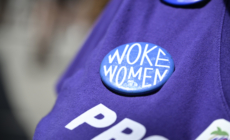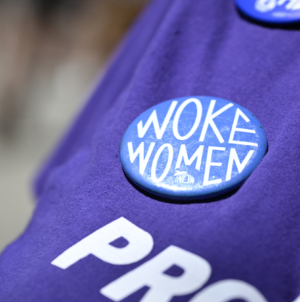-
Jan. 6 defendants from California eagerly await Trump pardons - 22 mins ago
-
Americans are Shunning ‘Woke’ Words, Poll Suggests - 23 mins ago
-
Don’t Do Trump’s Work for Him on Mass Deportations - 38 mins ago
-
Mia Khalifa’s Response to Dating Rumor Goes Viral - 59 mins ago
-
These tenants want to own their buildings. L.A. is collecting millions to help - about 1 hour ago
-
International Criminal Court Issues Arrest Warrants for Netanyahu and Gallant - about 1 hour ago
-
Snorkeler Channels Steve Irwin in Dream Encounter With Ocean Creatures - 2 hours ago
-
Do California teachers have the right to slam Trump? Yes. And no - 2 hours ago
-
Trump’s Tariffs - 2 hours ago
-
Musk and Ramaswamy Unveil Plan to Overhaul Government - 2 hours ago
Voters Taking $1 Million From Elon Musk Could Face Legal Trouble—Attorney
Elon Musk’s giveaway could land voters in legal trouble, a legal expert has said.
The Donald Trump-supporting Tesla billionaire is offering monetary prizes to swing state voters who sign a petition supporting the First and Second Amendments. The petition is open to voters in six swing states: Georgia, Nevada, Arizona, Michigan, Wisconsin and North Carolina.
Sums of $100 for signing or referring are offered in Pennsylvania, which is likely the most important swing state in the election. In addition, a $1 million lottery prize will be awarded daily to a signatory in one of the seven swing states.
A signer who refers another voter will get a $47 reward.
The petition rewards end on Election Day, clearly linking the money to the U.S. presidential election. Musk has been a staunch supporter of former President Trump, the Republican nominee, throughout the campaign.
Newsweek reached out to Musk and the U.S. Attorney General’s office for comment on Wednesday.

Photo-illustration by Newsweek/Getty
Los Angeles-based attorney John J. Perlstein told Newsweek that those accepting Musk’s offer could be in legal jeopardy.
“This is probably illegal under U.S. electoral law and could result in fines and potential prison sentencing for Musk and those registering to vote or voting under such influence,” Perlstein said but added that he doesn’t think law enforcement will act against those who accept Musk’s money.
“Musk is clearly straddling the gray area. His offer targets registered voters and is centered around the signing of a petition. He did not offer money to vote for a specific candidate. As it stands, it is unlikely that any recipients of the money would be punished by the law,” Perlstein said.
“The broader issue is concerns regarding corruption going forward if campaigns continue to push the limits without any repercussions or regulations,” he added.
Perlstein acknowledged that opinion varies on the legality of Musk’s offer.
“From my understanding, the election experts are split on the legality of this clown show; however, though not currently illegal, many feel it should be due to the influence it could have.”
“Mr. Musk is clearly trying to sway the election using his vast resources, which would be better used improving the reputation of his cars. This has the potential to heavily impact Harris if her voters are persuaded by these payouts,” he said.
Former federal prosecutor Neama Rahmani told Newsweek that Musk “is walking a very fine line.”
“Federal law is clear. He can’t pay someone to vote or to register to vote. That is prohibited by 18 USC 597 and 52 USC 10307. Instead, Musk is paying people to sign a petition supporting the First and Second Amendments if the person is registered to vote in a swing state. He is also giving away $1 million a day until the election,” Rahmani said.
Rahmani, the president of the West Coast Trial Lawyers law firm in California, said that Musk may have gone too far.
“Signing a petition is free speech that is protected by the First Amendment. Paying someone to sign a petition isn’t necessarily illegal unless the payment isn’t really to sign the petition but is rather a bribe to vote or register to vote. A direct payment, $47, or a lottery chance, $1 million daily giveaway, would both be considered bribes if they were for the purpose of voting or registering to vote,” he said.
A group of Republican lawyers and officials are urging federal and state investigations.
In a letter addressed to Attorney General Merrick Garland and Pennsylvania Attorney General Michelle Henry, former Justice Department officials argue that Musk’s initiative to pay voters in swing states may be illegal.
In the letter, obtained by The Washington Post, the group stated, “We are aware of nothing like this in modern political history.” The letter emphasizes that federal law imposes penalties of up to five years in prison for anyone who “knowingly or willfully…pays or offers to pay…for registration to vote.”
Source link


















